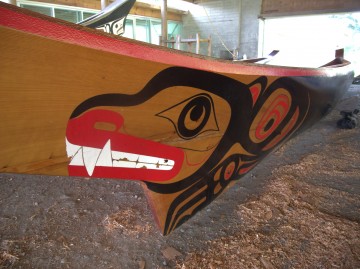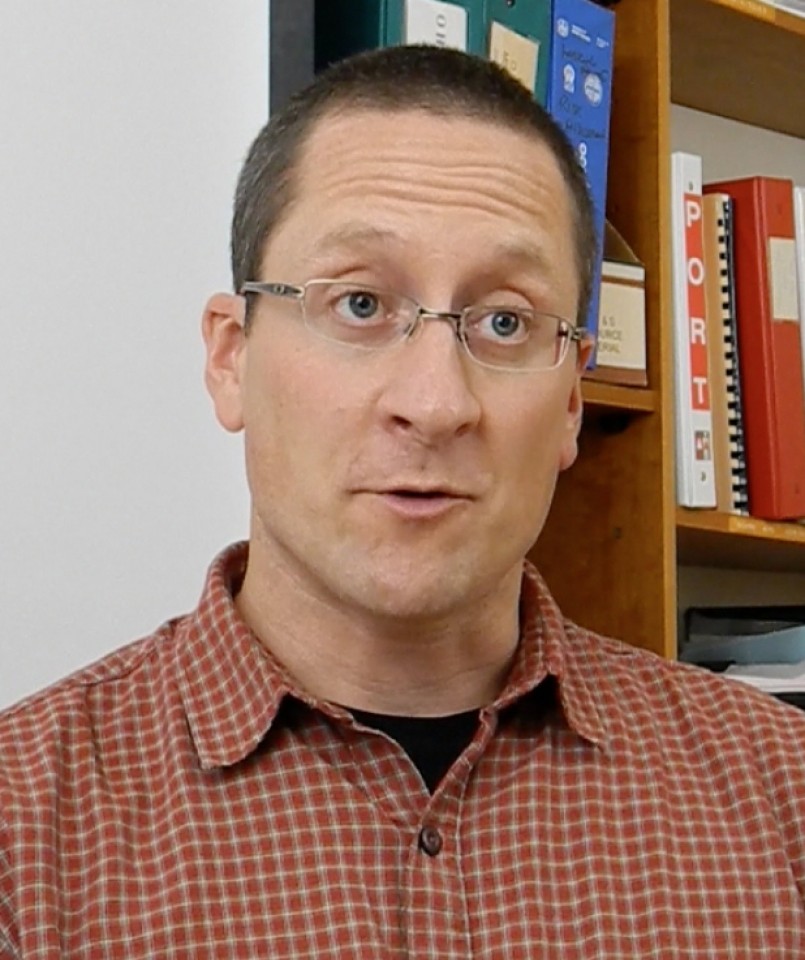Separated from British Columbia’s mainland by the fierce currents of the Hecate Strait, and often shrouded in dense fog and mist, it is easy to see why the Haida people refer to the small set of sylvan islands as “Xaadala Gwayee”— the islands at the boundary of the world.
When the fog lifts on Haida Gwaii, the golden sunlight bounces off the water, illuminating the dense spruce and pines lining the coast. The natural beauty of these remote islands, and the rich history and art of the Haida people who call it home, have long lured travelers willing to make the journey.
But for a young doctor in training, this place brings a particular set of challenges. The closest CT scan is in Prince Rupert, an eight-hour ferry ride away. Managing a seriously ill or injured patient often involves considerations that most residents never confront —such as the weather.
“If someone can’t be handled here, we have to get them off-island,and it’s not just a matter of getting the plane and getting them on board,” says Cam Grose, a second-year UBC resident in family medicine, in the midst of an eight-week rotation on Haida Gwaii. “There can be long delays due to weather conditions, plane availability, logistical challenges and managing them here in the interim. And any time I’m asking to put three people in the air, there is an added element of risk.”
The limited availability of lab tests and resources, the logistical challenges of practicing medicine in a remote location, and the cultural skills required to care for a largely Aboriginal population combine to make the family medicine residency rotation in Haida Gwaii an assignment unto itself.
All family medicine residents must complete an eight-week rotation in a rural community in British Columbia. Haida Gwaii, an archipelago of two main islands and 150 smaller ones, has been one of the options for over 20 years, and has become one of the most sought-after.
“The rotations on Haida Gwaii give residents access to Aboriginal health issues, the doctors and health professionals have great reputations, and it is a beautiful place to visit,” says Willa Henry, the Program Director of the Family Practice Postgraduate Program.
One stop for most residents is the Northern Haida Gwaii Hospital and Health Centre in Masset, on the northern tip of Mooresby Island, where on a clear day one can see the outline of Alaska in the distance. Clinical Instructor Michele Leslie, a family physician based there, strives to ensure that the education extends beyond the clinic’s walls.
Supported by a Faculty of Medicine Special Populations Fund grant, she provides “cultural safety” training for residents, assigning readings on the history and impact of residential schools, and encouraging participation in Aboriginal community events, so that residents gain some context and can communicate more effectively.
 “Being culturally aware and sensitive to subtle aspects of how they communicate, and what are faux pas or not, can make a big difference, especially when you are talking to elders about their care,” says Matt Menard, a veteran of the Haida Gwaii residency rotation, who has since returned for a “locum,” or temporary assignment.
“Being culturally aware and sensitive to subtle aspects of how they communicate, and what are faux pas or not, can make a big difference, especially when you are talking to elders about their care,” says Matt Menard, a veteran of the Haida Gwaii residency rotation, who has since returned for a “locum,” or temporary assignment.
Dr. Menard’s return to the scene is typical.
“For every resident that has come here to train, every one has come back to do a locum as a staff physician here,” Dr. Leslie says. “I really feel that is a testament to the positive experience they have as learners, and the pull of this place. People fall in love with it.”
That was certainly the case for Dr. Grose, whose first encounter with Haida Gwaii came in his fourth year in UBC’s Northern Medical Program, when he spent a month in Queen Charlotte City.
“The exposure to the doctors, and being a part of the health care community, solidifi ed my decision to pursue rural family medicine,” he says.
Now back as a resident, Dr. Grose is taking on a more independent role – managing patients with the health care team, and learning to optimize resources, such as telemedicine – to help his transition to independent practice this summer.
At Friday morning rounds, Dr. Grose joins his physician colleagues, members of the nursing staff, and community support workers at the Queen Charlotte Islands General Hospital to discuss patients, health care and other community issues in such villages as Tlell, Sandspit, Skidegate and Port Clement.
“It’s not just the training, but the connections you make within the community,” Dr. Grose says. “It’s the patients you see, the problem-solving, the strategizing that you are exposed to throughout the training. Those are the pearls that don’t necessarily relate to medicine per se, but do relate to future practice.”
